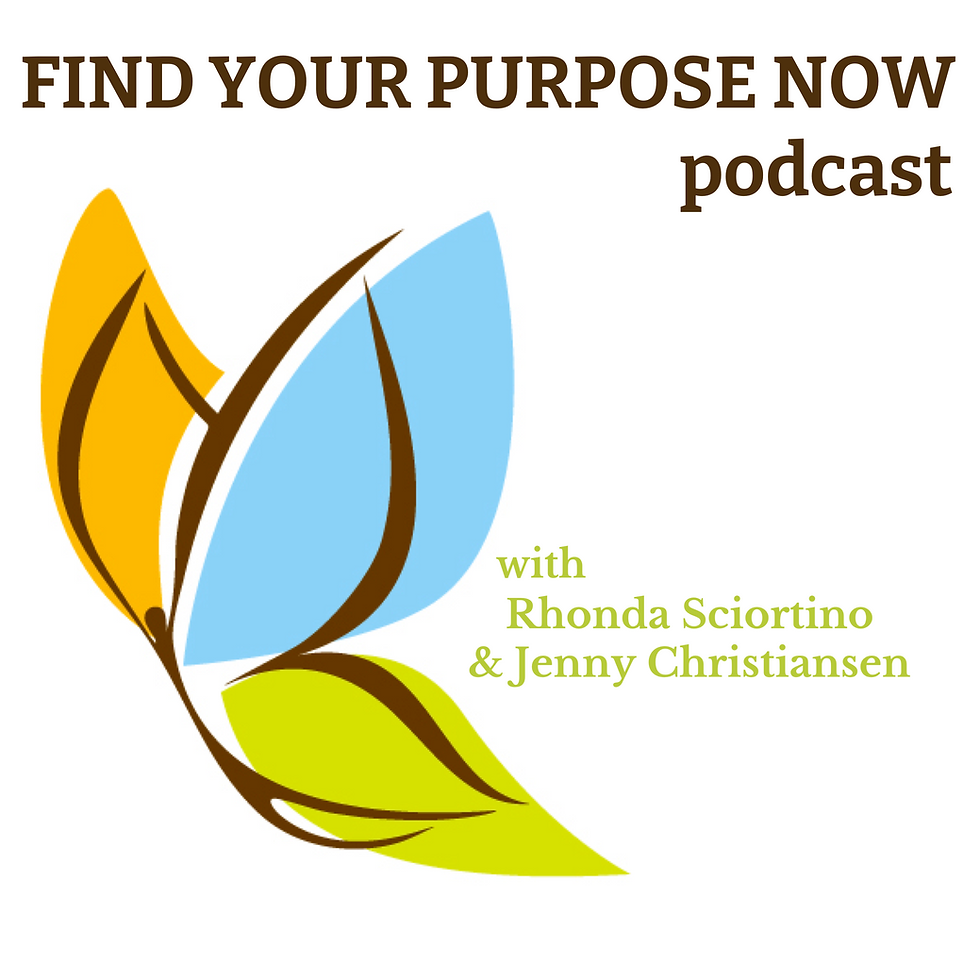We Don’t Have To Agree To Get Along
- Rhonda Sciortino

- Jul 13, 2021
- 4 min read
Updated: Nov 25, 2022
TRIGGER WARNING: This may cause a visceral reaction
Some of the most rewarding relationships I’ve enjoyed are with people who are different from me or who feel differently than I do. We have very different views on politics and religion, and we might learn that we differ about alot of other things if we sat down and made a list. But we don’t. Why focus on the differences?
My friends and colleagues and I don’t waste our precious, irredeemable time talking about things we don’t agree on. None of us feel the need to persuade the others to believe what we believe or to vote the way we vote. Of course, there have been a few exceptions, like the time one of my friends said boldly, “I forbid you to vote for XXXXX!” I smiled and asked her to join me at an event to share her knowledge about preventing child abuse.

The secret to powerful collaborations and beautiful relationships is interacting with individuals, not groups. When we look into one another’s eyes and connect on those things on which we are passionate, we can spark a fire in one another and in others within our influence. Conversely, when we fail to see each other as unique individuals, we categorize them as part of groups with which we may either feel strong allegiance or vehement disagreement.
When we put labels on others, we miss out on so much. The things I’ve learned from people who are different from me or who feel differently than I do cannot be contained here. The most important thing for me is the opportunity to understand the “why” behind their opinions and beliefs. When we get a glimpse of the painful events or strong influences that have informed the beliefs of others, we are far more sympathetic to their positions. Likewise, when we are willing to listen to their “why,” they are far more likely to listen to ours. That’s called mutual respect, and that’s what forms a foundation on which we can build good relationships.
Listening doesn’t imply agreement. We can listen to each other and still strongly disagree. But when we truly listen (without formulating our response while the other is speaking), we come away with a better understanding of the position of the other person. Importantly, rather than feeling obligated to persuade others to our point of view, when we truly listen, we have an opportunity to share our differing opinion in a way that has a much better chance of being received and absorbed. An example of this is with a client who became a dear friend of 30+ years.

Leslie (I’ve changed her name so that she doesn’t get hammered on social media), is a lifelong Christian. She has been a foster mother to countless children who desperately needed some unconditional love. She has lived her life for others. Leslie is an advocate of legal and safe abortion.
Being an advocate for children while at the same time being a proponent of abortion just didn't make sense to me. These two things are at odds in my mind, making my friend a living, breathing contradiction. To me, a child advocate advocates for every child—including those who are not yet born. So when my friend’s opinion on this issue came up in conversation, I said, “I don’t want to start a rift with you—I love you and I respect you--so I would be grateful if you would please help me understand how you justify abortion as an acceptable choice?” Without missing a beat, my friend said, “God gave us all free will to do whatever we please, so I do too.” I didn’t see that coming.
Aren’t we all living, breathing, complicated contradictions? We detest people who break the rules and then we drive faster than the speed limit. We can’t tolerate the deceit of others, and then we lie and say we can’t make it when, in truth, we just don’t want to go. We look down on people who are disingenuous, and then we photoshop our selfies to look skinnier, younger, and more attractive. We are all flawed to various degrees, and none of us has been granted authority to judge and convict others.
I still feel that abortion is wrong, but having a civil conversation with someone who was willing to share her opinion without anger or defensiveness or a desire to persuade me to believe as she does, has led us to a place of better understanding of one another. We are still on opposite sides of this issue, and we're still friends.
Wouldn't it be wonderful if people didn't throw away relationships over disagreement? Wouldn't our lives be better if we all decided that we don't require agreement with our beliefs, values and opinions in order to be in relationship?
The moral to this story is to look at each other as the complex individuals we are, to respect one another regardless of our differing opinions, and to choose to invest our precious, irredeemable time talking about, and acting on, the good that we can do in the world together rather than wasting time focusing about our differences.

Rhonda Sciortino is an author, speaker, and national champion of the Love Is Action Community Initiative. She believes that there is awesomeness in each of us, and that there is a purpose for which each of us has been perfectly matched. In all of her writing, speaking, media, and podcasts, she tries to hold up a mirror to help others discover the good character and personality traits within them.
#diversity #relationships #happiness #impact #identity #purpose #family #friendship #connection #commonground #agreement #power
Here's an easy first step towards finding and living your purpose--subscribe now to the FIND YOUR PURPOSE NOW Podcast Apple Podcasts, Google Podcasts, Spotify, Iheartradio, Amazon music, Overcast, Castbox, Pocket Casts, Radio Public, and right here at www.rhonda.org/podcast.
















Comments